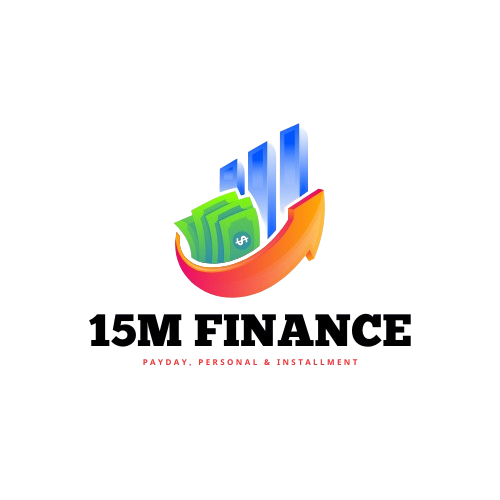Top Easy Approval Loans to Consider in 2025
If you’re facing a sudden financial shortfall, easy-approval loans can offer a quick solution. These short-term borrowing options are often used to handle urgent expenses—such as medical bills, car repairs, or other unexpected costs.
Available online, these loans typically require minimal qualifications and often skip credit checks, making them highly accessible and fast to process.
Loan types like payday and installment loans are among the simplest to qualify for, even if you have bad credit. However, before applying, it’s important to understand the potential risks and key factors that impact approval. In this guide, we’ll explore how these loans work, what to consider before applying, and some alternative options that may suit your needs.

Types of Loans That Are Easy to Get Approved For
Looking for a loan with fast approval and minimal requirements? Here are some of the most accessible loan options available, even for borrowers with poor or no credit.
1. Payday Loans
Payday loans are small, short-term loans typically used for urgent financial needs. These are especially popular among borrowers with bad credit due to their minimal application requirements and fast processing times. Loan amounts usually range from $100 to $1,000 and are typically repaid in one lump sum within 14 to 31 days.
However, payday loans often come with extremely high interest rates and short repayment windows, which can lead to a cycle of debt if not managed properly.
Pros:
- Rapid approval, often within one business day
- Soft or no credit checks
Few eligibility requirements
Available for poor credit borrowers
Same-day funding possible
Cons:
High APR and fees
Short repayment terms
Can lead to repeated borrowing and debt traps
Risk of unethical lending practices
Basic Eligibility:
Must be at least 18 years old
Proof of a steady income
Valid ID and active bank account
Proof of residency
2. Personal Installment Loans
Installment loans allow borrowers to repay a fixed loan amount over time in equal monthly payments. Loan amounts can vary from $1,000 to $50,000, with terms ranging from a few months up to several years. These loans are well-suited for debt consolidation, home improvements, or large expenses.
Banks and credit unions offer lower rates and higher amounts, but require better credit. Online lenders may work with borrowers who have fair or poor credit but often charge higher interest.
Pros:
Larger loan amounts
Longer, predictable repayment schedules
Opportunity to build or improve credit
Can be used for many purposes
Cons:
May require a fair to good credit score
Possible origination fees
Slower approval compared to payday loans
Long-term borrowing can cost more overall
Eligibility Requirements:
Age 18 or older
Credit score typically between 580–680 or higher
Proof of income and employment
Acceptable debt-to-income (DTI) ratio
3. Credit Builder Loans
A credit builder loan is designed to help borrowers build or repair their credit. The loan amount is held in a secure account while you make fixed monthly payments. After the full amount is repaid, you receive the funds. These loans are excellent for people with no credit history or those looking to improve their score.
Pros:
Builds a strong payment history
No credit score usually needed to apply
Encourages saving while building credit
Cons:
No upfront cash access
Small loan amounts (often under $5,000)
Interest paid on money you can’t use immediately
Eligibility:
Age 18 or older
Regular income
Valid identification
Bank account for scheduled payments
4. Secured Loans
Secured loans require collateral, such as a vehicle, property, or savings account. Since the lender has security, these loans often come with better interest rates and higher borrowing limits—even for applicants with poor credit.
Be cautious: failing to repay means you could lose the asset used as collateral.
Pros:
Lower interest rates
Larger loan amounts available
Easier approval for low-credit borrowers
Cons:
Collateral at risk if you default
Slower application process due to asset verification
Limited borrowing based on the asset’s value
Common Collateral Options:
Vehicles
Homes or real estate
Savings or investment accounts
Cryptocurrency
Eligibility Criteria:
Age 18+
Verifiable collateral
Proof of ownership
Credit score requirements may vary
5. Pawn Shop Loans
Pawn loans let you borrow money by pledging a valuable item, such as electronics, jewelry, or tools. You receive a percentage of the item’s worth and reclaim it after repayment. These loans are accessible to individuals with no credit history or bank account.
Pros:
No credit check
Instant cash access
No impact on your credit if unpaid
Cons:
High interest and fees
Short repayment terms (30–60 days)
Risk of losing your item permanently
To Qualify:
Must be 18 or older
Provide a valuable item
Proof of ID
Proof of item ownership (in some cases)
6. Auto Title Loans
An auto title loan allows you to use your car title as collateral while still driving your vehicle. Loan amounts typically range from 25% to 50% of your car’s value. While quick and convenient, these loans come with very high interest rates—often exceeding 300% APR—and the risk of repossession.
Pros:
Fast approval, even with bad credit
Keep driving your car
Larger loan amounts than other short-term loans
Cons:
High APR and daily interest fees
Short repayment periods (typically 30 days)
Risk of losing your vehicle
Often leads to costly loan rollovers
Eligibility:
Must be of legal age
Clear title to the vehicle
Proof of income and insurance
Valid driver’s license
7. No Credit Check Loans
These loans bypass traditional credit bureaus and instead use alternative data, like income or banking history, for approval. While helpful for people with bad credit, they often carry high interest rates due to the added risk for lenders.
Pros:
Fast funding
No hard inquiry on your credit report
Accessible to people with low or no credit
Cons:
Higher fees and interest
Smaller loan amounts
Risk of predatory practices
Usually won’t help build your credit
Eligibility:
Must be at least 18 years old
Proof of stable income
Active bank account
Valid ID and employment verification
Key Factors That Affect Loan Approval
Even with easy-approval loans, lenders still evaluate specific criteria to decide whether you qualify and what loan terms to offer. Here are the most common factors that influence your chances:
1. Credit Score
Your credit score plays a major role in loan decisions. While many lenders accept applicants with poor credit, your FICO score may still influence the interest rate, loan amount, and repayment terms you’re offered. A higher score typically leads to better deals and more borrowing options.
2. Income and Job Stability
Lenders want to be sure you can afford to repay the loan. A steady and sufficient income significantly boosts your approval chances. Some lenders may also review your employment history, while others might consider alternative sources of income if you’re self-employed or between jobs.
3. Payment History
Your track record of repaying debts helps lenders assess your reliability. Even if you’ve made financial mistakes in the past, a recent history of on-time payments can increase your credibility and improve your chances of approval.
4. Existing Debt Levels
Lenders look at your debt-to-income (DTI) ratio to determine how much of your income goes toward debt payments. A low DTI suggests better financial health and improves your odds of approval, as well as your ability to secure more favorable terms.
Tips to Improve Your Loan Approval Chances
If you’re concerned about getting approved, here are several ways to strengthen your application:
1. Monitor Your Credit Regularly
Review your credit reports to catch errors and understand your current standing. You’re entitled to one free credit report annually from each of the three major bureaus via AnnualCreditReport.com.
2. Prepare Necessary Documents
Gather key documents like government-issued ID, proof of income, utility bills, tax returns, and bank statements. Being well-prepared can speed up the application process and make you appear more reliable.
3. Boost Your Income
If your credit score is low, your income becomes even more critical. Consider adding a side job or reporting additional sources of income to show lenders you can handle loan repayments.
4. Choose the Right Lender
Compare different lenders to find one that matches your financial profile. Look for transparent terms, reasonable interest rates, and flexible requirements.
5. Work on Improving Your Credit
Even small improvements in your credit score can lead to better loan terms. Pay your bills on time, reduce credit card balances, and consider tools like secured credit cards or credit-builder loans to raise your score gradually.
Alternatives to Easy Approval Loans
While easy-approval loans offer fast access to cash, they often come with high costs. Here are a few more affordable and potentially safer alternatives:
1. Borrowing from Friends or Family
A personal loan from someone you trust can be interest-free and more flexible. Just be sure to set clear terms to avoid misunderstandings or strained relationships.
2. Local Assistance Programs
Many local and state organizations offer financial aid, such as small cash grants, emergency food or housing help, or utility bill support. These programs often charge little to no interest and are designed to support people in temporary hardship.
3. Credit Unions
If you’re a member of a credit union, they may offer low-interest loans with flexible repayment plans. Credit unions often have more lenient approval criteria and prioritize member well-being.
Conclusion
While payday loans are often the quickest way to get approved, they come with high costs and short repayment terms that may not suit every borrower. Other options—like secured loans or personal installment loans—may offer better long-term value, even for those with bad credit.
Before committing to any loan, take time to compare your options, understand the terms, and consider safer alternatives. The easiest option isn’t always the wisest—choosing carefully can protect your financial future and help you avoid costly mistakes.
References & Helpful Resources
Consumer Financial Protection Bureau (2021)
What Is a Payday Loan?
Learn the basics of payday loans, how they work, and the potential risks involved.
Read moreFederal Trade Commission (2022)
Car Title Loans
An overview of how auto title loans work and the associated consumer risks.
Read moreNational Credit Union Administration (2023)
Credit Union vs. Bank Interest Rates
Explore the key differences between credit unions and banks, including interest rate comparisons.
Read moreUSA.gov (2023)
Credit Reports and Scores
A government resource for understanding and managing your credit reports and scores.
Read moreFederal Reserve (2022)
Economic Well-Being of U.S. Households: 2021 Report
Data-driven insights into the financial health of American households.
Read moreExperian (2023)
What Is a Good Credit Score?
A detailed explanation of credit score ranges and their impact on borrowing.
Read moreConsumer Financial Protection Bureau (2023)
Understanding the Debt-to-Income Ratio
Learn why your DTI ratio matters and how it affects your ability to borrow.
Read moreFederal Deposit Insurance Corporation (2023)
Loans and Credit Products
Information on various types of credit products, including how to choose the right one.
Read more


